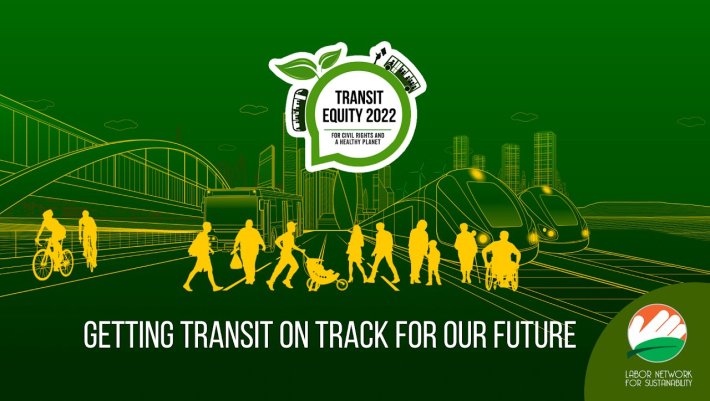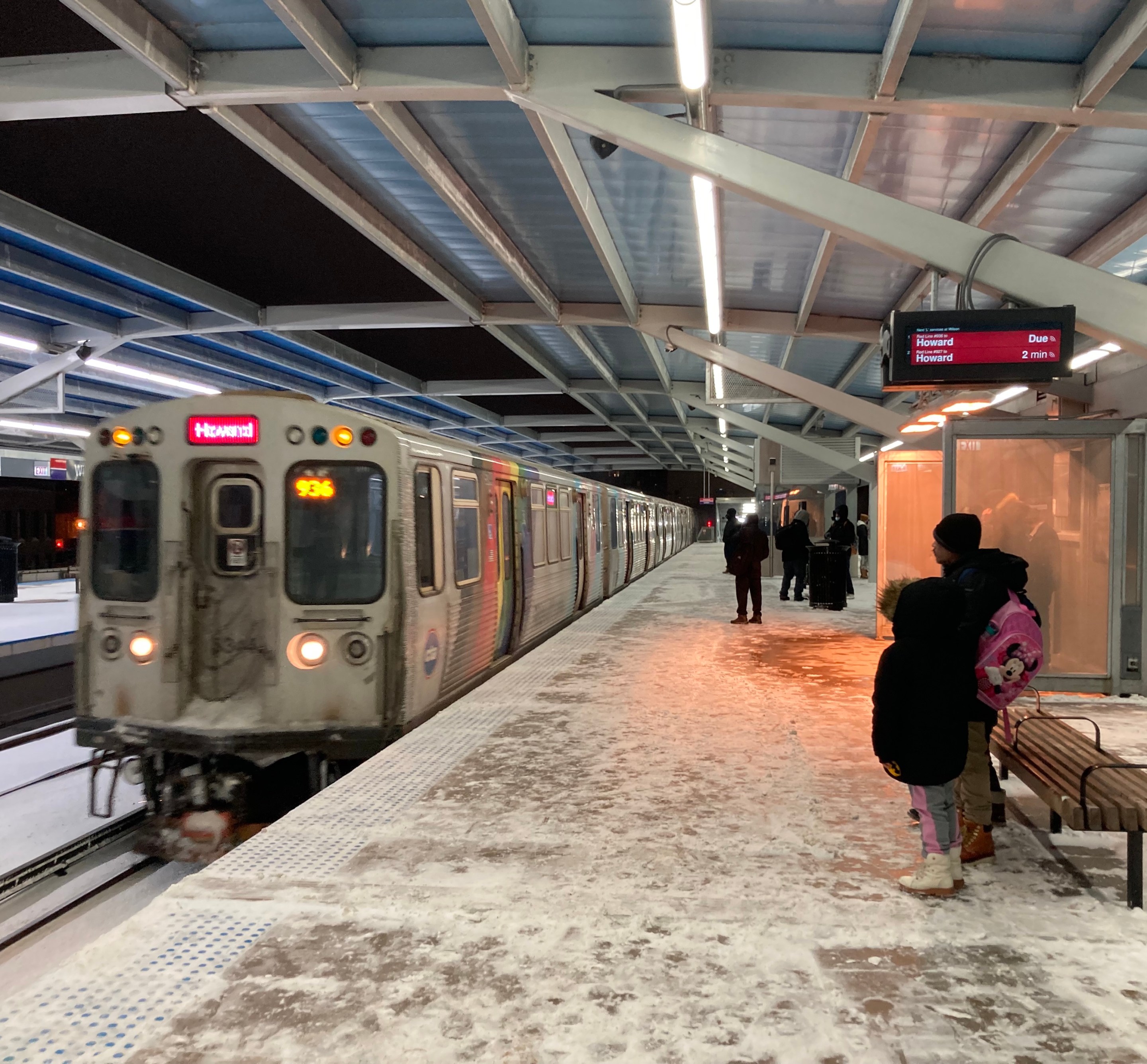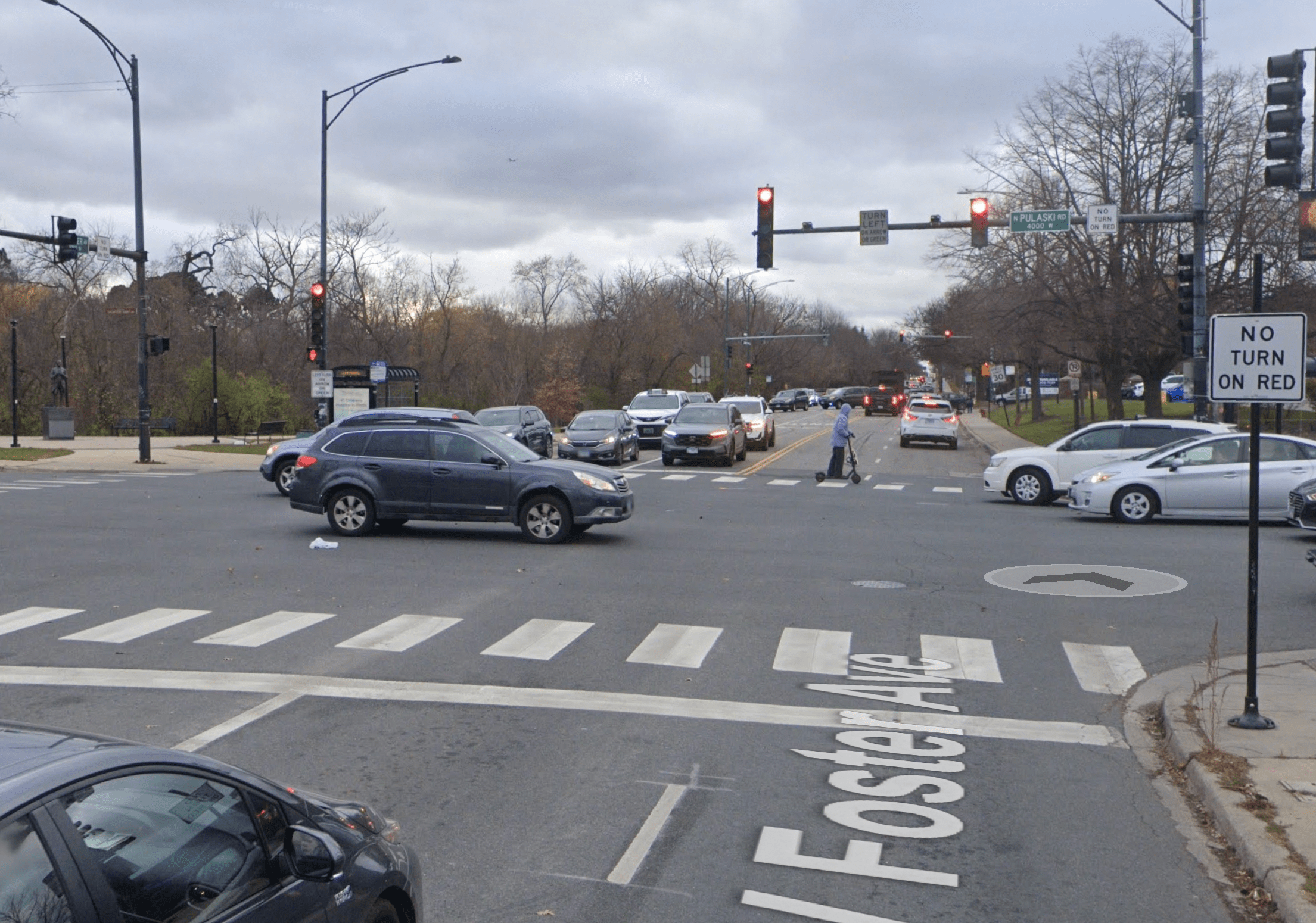Chicago transit is at a crossroads. Ridership is still way down from the pandemic, and recovering slowly. A spike in violent crime on the CTA is endangering riders and employees alike. Concerns about personal safety and COVID risks among bus and train operators have contributed to labor shortages, which has led to longer waits between buses and trains and increasingly unreliable service.
If these trends continue, transit could become a travel mode of last resort, largely abandoned by more affluent residents who can afford to get around in cars instead. The drop in riders and revenue would create a vicious cycle of service cuts, fare hikes, and even less ridership. That would leave many essential workers and vulnerable Chicagoans who rely on transit, largely people of color, stuck with worse service than ever. Our city's transportation system would be increasingly dangerous, unsustainable, and inequitable.
Fortunately, there's still time to take a different path, by investing in local transit to make it safer and better, with a focus on racial and economic equity. With this goal in mind, labor organizations, transportation advocacy groups, and environmental nonprofits will hold a rally for transit justice this Friday, February 4, at 8 a.m. at the Western Avenue station of the Blue Line's Forest Park branch, located at 430 South Western. The event, which takes place on Transit Equity Day, Rosa Parks' birthday, will also mark the launch of Chicago's first transit riders union.

The transit riders union is initially being launched under the umbrella of Chicago Jobs with Justice, a coalition of labor, faith, and community organizations campaigning for workers' rights and social and economic justice, according to ATA spokesperson Kyle Whitehead. "The hope is for the riders union to eventually stand on its own. The first goal of the union is to connect with riders around the region to get input on an agenda and start to build power. They’ll be canvassing at bus and train stops and connecting with riders digitally. As they build out an agenda, they’ll organize and lobby decision-makers to make these changes."
Speakers at Friday's event will include representatives of the Amalgamated Transit Union, Warehouse Workers for Justice, Sierra Club of Illinois, and the Active Transportation Alliance. The rally will also highlight a new transit equity report that will be released that day, and a new Transit for All Coalition and city-wide transit rider organization being created in Chicago.
“The transit equity report [that will be released on Thursday] by the Labor Network for Sustainability, the Alliance for a Just Society and the TransitCenter highlights that Black people across the country are more likely than white people to count on buses, trains, and other forms of public transit as their primary transportation option, and are more likely to use public transportation to get to work," said W. Robert Schultz, III from Active Transportation Alliance and the Transportation Equity Network in a statement. "Therefore, investments in public transit contribute to economic opportunity for Black and brown working people."
“Our transit workers are on the front lines every day," said Keith Hill, president of ATU Local 241, which represents bus operators, in a statement. "We are proud of the work we do under difficult circumstances, including this global pandemic. Our transit workforce deserves the very best in safety, pay, benefits and working conditions. And if we provide that as a city we will be able to continue to recruit and retain an outstanding workforce. We must invest in transit workers in order to improve and expand transit.”
The rally will call for (organizers' language):
- Systemwide transit station accessibility
- Equitable investments in the transit workforce
- Increasing the frequency of transit service, especially during off-peak hours and in the outlying areas of the city and suburbs
- Full electrification of buses and trains to lessen air pollution and climate change.
During the event, canvassers will be asking attendees how they'd like to see funding from the recently passed federal infrastructure bill allocated to improve local transit. "The majority of transportation funding in the bill is passed through to states, who then have broad discretion for how to spend the funds," said ATA's Kyle Whitehead said. "The Illinois Department of Transportation typically invests these 'formula funds' in roads and highways, but they have the ability to flex the money to public transit, which we and other advocates are calling for them to do. There’s also billions in the bill for discretionary grant programs for which transit projects are eligible, such as RAISE, New Starts, State of Good Repair, All Stations Accessibility Program, etc."
Illinois governor J.B. Pritzker recently discussed his his intentions to use much of Illinois' estimated $17 billion in funding from the infrastructure bill to widen expressways and Interstates.
Even if you can't make it to the rally, you can get involved by tagging @activetrans @transit4a on social media and using the hashtags #KeepTransitRolling #Transit4All #TransitEquityDay to provide input on how your commute could be improved. To encourage participation, there will be a raffle with prizes for everyone who tweets or posts on Facebook, Instagram, or Twitter with the tags above.
You can also get involved with the transit riders union by texting “Transit4All” to (773) 261–8899.




